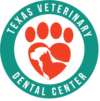Gingival enlargement refers to an abnormal overgrowth of the gum tissue around the teeth. The overgrowth typically presents as a firm generalized swelling of the gums affecting all the visible gum tissue within the mouth. This excessive tissue can partially or completely cover the teeth, creating pockets where food and bacteria can accumulate, and leading to bad breath, infections, and periodontal disease. Gingival enlargement is typically a benign, non-painful condition. However, the periodontal disease caused secondarily to the pocketing or self-mastication and trauma can cause significant discomfort. Certain breeds, such as Boxers, Bulldogs, and Collies, are genetically predisposed to develop gingival enlargement. Some medications, poor oral hygiene, or chronic inflammation and Infection of the gums are known to be a cause.
Treating Gingival Enlargement in Dogs
Treatment involves trimming back or reshaping the excessive tissue (Gingivectomy or Gingivoplasty) to create normal pocket depth on each tooth. Dental xrays are important to determine the health of the tooth and bone below the gumline and to determine if there is associated periodontal disease. A biopsy of the abnormal tissue is often recommended, especially if enlargement appears to be localized to specific areas. Some types of tumors are known to mimic gingival enlargement.
Schedule an Appointment with a Houston Dog Dentist
Please call our office to schedule an appointment for your pet’s oral examination today!
Images used under creative commons license – commercial use (3/17/2025). Photo by Anima Visual on Unsplash

